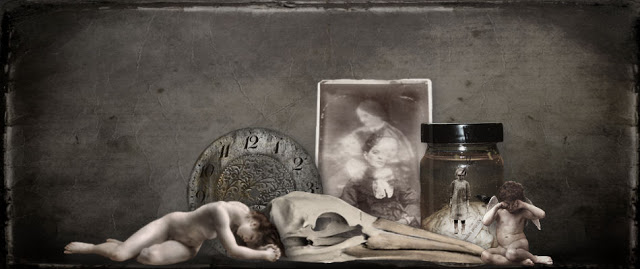I have to confess, I write enthusiastically while not really knowing, in literary or theoretical terms, what I am doing. I know very little (other than snippets I have culled from magazines and The Book Show) about literary theory. Now I am off to do Creative Writing with people, some or most of which, will have a BA in Literature or some related subject. I sit here with my BSc and beyond, all in science. Writing is something, that for a very long time, I just did. So I didn't get any better or worse, or, maybe I did, but I didn't know about it. It was just more (or less) satisfying for me. But, like most people, I have been writing, consciously or otherwise, for an audience so there is an implied value - that I can write well or badly from their point of view.
I decided it was time to at least have a look at literary theory, if only so I know the difference between 'good' and 'not-good' literature, although the scientist in me disagrees with idea that something can be objectively good without a whole social context. I bought a slim volume called Literary Theory, A Very Small Introduction by Jonathan Culler. It's 120 tiny pages of explaining the major ideas and thoughts behind literature.
Chapter 1 poses the question: What is theory? Then just when you think you know, it points out that even the word theory is full of complexity. It's a set of speculations and hypotheses that challenge the simple, commonsense assumptions that have been shaped by convention, society, history. It suggests that talking and writing about something changes it, forms a new construct of it. Theory is not tied to a single area, it is naturally interdisciplinary; it is speculative in that it tries to understand something; it challenges assumptions; and it reflects on thinking itself, on the meaning of theory. My brain aches. But I do, with a bit of banging my head on the table, understand what he is saying.
Chapter 2 is What is Literature and Does it Matter? After a fascinating journey through the idea of what literature is, what qualities it possesses to make it literature, it comes to the conclusion that we write from what we already know, from what is conventionally acceptable (otherwise no-one could read it) but then can go further, break new ground. Not bad for two days reading. An excellent £5.88 worth of helpful hints into a huge topic.
Of course, having read chapters 1 and 2, I have liberally coloured them in and made notes in the margins. Ever since I started with the OU in 1994 I have used a highlighter pen as I read textbooks. Recently I have had people acting very disapproving as if I was doodling in library books or something. I even had a fellow student say: 'Oh, what a shame, now you won't be able to pass them on.' Why would I pass them on anyway? If they are that useful that I want to study them in detail, chances are I want the best bits highlighted. One helpful side effect is that they slow down my reading and make me take on the meaning in more detail, rather than skipping through it rather superficially. I read very fast and a consequence is that I don't give that much attention to it unless I am highlighting the best bits, colouring the cartoons, doodling and putting notes all over it. I'm always interested in how other people study, I've picked up all sort of helpful tips over the years, but the highlighter is definitely staying.


No comments:
Post a Comment
Note: only a member of this blog may post a comment.